Struckout is a noisy post-hardcore band from Long Beach, California, formed in 2012 by bassist and vocalist Daniel Speer. Later joined by percussionist James Goldmann and guitarists Josue Quiquivix and Garrett La Bonte, the four-piece outfit has toured extensively in the western half of the United States, playing both local shows and opening for national acts including Glassjaw and Jeff Rosenstock. Struckout also plans to hit the east coast in late August with the emotional hardcore band Dreamwell.
Struckout’s most recent self-titled album was recorded, mixed and mastered by Jack Shirley at The Atomic Garden and It will be released on July 20. On Struckout’s third LP, topics range from the hollow nature of menial tasks at work, the exploitation therein, and the general meaninglessness of things, to what it’s like to live in the political climate of today, trying to push forward, and struggling/coming to terms with identity. This is presented with densely layered musical intensity and vocals dripping with emotion, desperate to reach out and connect with the listener. The sound fluctuates from hushed mumbles and calm, melodic breakdowns to explosive, noisy punches. The overall feeling, were one to draw on comparisons, is something in the spirit of a nuanced permutation of Fugazi.
Ghettoblaster recently caught up with the members of Struckout to discuss hardcore, weird shit, the record and night stalking. This is what they said.
Are you originally from Long Beach? If so, I imagine that ’80s and ’90s West Coast hardcore is an influence that has leached in to your musicianship.
James Goldmann: None of us are, actually! Garrett and I are from Orange County, Josue’s from Downey and Daniel grew up in San Diego. Daniel and I moved to Long Beach for college, which is where the band was founded. I definitely think the influence of San Diego hardcore and skrams had a massive impact on the band, though, and that’s something that came mostly from Daniel.
Daniel Speer: Yeah, I’d argue that Gravity Records and a lot of SoCal screamo bands had a bigger influence on the style of music I played than straight up hardcore. Portraits of Past, Drive Like Jehu, Antioch Arrow and Heroin were all big influences on me when I first started writing songs for Struckout. Most of that stuff was before my time, mind you I was just a nerdy kid listening to these bands on my computer.
I first started going to Che Cafe shows around 2009, and by then a lot of the bands were either hardcore bands or folk punk bands, unless a touring band was coming through. When I moved out to Long Beach, there wasn’t really a centralized music scene; there were a lot of house shows, gigs at record stores, small stuff that would pop up occasionally. It’s still kind of like that, but it feels like it’s getting a little better now. Most of the time we end up driving to the Inland Empire and all around the greater Los Angeles area. Even when we first started playing, it felt like every band was a garage punk band or a psych rock band from LA, which is fine, but I tried writing music that I didn’t think there was enough of.
Garrett La Bonte: Pretty much agree with everything Daniel said. I enjoy some of the ’80s punk standards and some bands on Revelation Records, but I think most of our common ground is in bands on the weirder fringe of punk and hardcore from places like San Diego and the Northwest.
What is it about the band that makes it a worthwhile endeavor for you?
Josue Quiquivix: I get to play loud and weird stuff.
James: Same! While we’ve all found common ground, we’re all pretty different musicians with varying taste, but that’s never been a burden, if anything, it’s been a benefit. This band has never felt like any one person has complete control; we’re all able to bring in whatever influence we want, as long as we can tastefully inject it into the greater Struckout sound. We’ve adapted, we’ve evolved, and we’ve never compromised our music for anything, even the technical limitations of our own ability. Sometimes I suck and that’s okay.
Daniel: Yeah, this band has changed a lot. It started with me in my college dorm during a time when I felt like music was the only thing I could do well, and if I could just make a great album, everyone would finally see that I deserved to be a “big deal” or whatever. Now it’s enjoyable, it’s challenging, and it feels like an artistic outlet that lets me put all the parts of me forward. Knowing I’ll be able to point to a body of work I can be proud of is comforting. When people first started coming to shows, and eventually knowing the words of some of our songs, that was incredibly rewarding. I’m trying to keep getting that reaction when I write new songs. I also love yelling my thoughts and opinions at others in a venue where they’re forced to just stand there, slightly bob their heads and listen.
Garrett: Southern California is plagued by guitar bands and labels that try too hard to stay in their genre lane. “We’re going to play hardcore so we can get on hardcore shows,” or “we are a garage rock label, so we will only put out garage rock bands.” But there are those occasional “weird” bands that aren’t worried about following the blueprint or appealing to a target market, and those are the bands I respect the most. Struckout isn’t afraid to just be ourselves, whether it be musically, aesthetically, or ethically. We play for whoever is willing to hear us without compromising what we want to do. Each member is open to each other’s ideas, and above all we’re all actually excited to play every show we book. I feel that’s rare to find these days.
When did you begin writing the record and were there messages you were hoping to convey or catalysts you were hoping to tackle?
Daniel: I started trying to write the record immediately after we finished recording the last one in January of 2015. I had a terrible writer’s block. The only songs I was able to write were “Queer Shit” and one of the songs that ended up on our split from earlier this year. I don’t feel like I wrote anything substantial until Josue joined the band in mid-2015. I wasn’t even sure the band was going to continue until they came along. After that, the record came into focus. I knew it had to be whatever we felt like we hadn’t accomplished sonically, like being a little more indulgent with the song lengths and structure while sort of sifting through the rubble of the last record.
It’s hard not to sound like you’re up your butthole when you talk about your own art, but “What You Deserve,” lyrically, looked inward, at what “success” is and if wanting to be “successful” is a healthy thing (spoiler: it isn’t). The new record is picking up the pieces of the disillusionment that writing a record like that can cause, asking, “what else is valuable to me? Why keep being in a band?” By the end of the record, hopefully it’s clear what’s important to me: my friends, my community, asserting my own identity, and how fragile all those things can be. It feels almost like an in-between record, transitional. I keep half-jokingly referring to the album as our Steady Diet of Nothing.
Do you think it is hard for people to suss out their true selves or identity in a climate that is so politically polarized?
Josue: Oh totally. I’ll have moments when I have to remind myself that it’s okay to be who I am, and no one can tell what I can or can’t be.
Daniel: Yeah, it’s hard for sure. I don’t know if it’s necessarily harder now due to this “political climate;” I just feel like bigots are louder now. They’ve always been around. A lot of my own battles are internal – sorting out my own queer stuff, trying to remember that cliche, “the people that matter don’t care, and the people that care don’t matter.” I mean, that’s bumper sticker as fuck, but it usually helps me maintain confidence in my identity. That’s just my experience, though. We’ve encountered our fair share of bigots both at home and on tour, but it’s nothing like horror stories I’ve heard from other bands and marginalized folks.
Is there anything that you came to learn about yourself while writing this record?
Daniel: I’m not done writing songs and I have infinitely more to learn about myself, about music, and about those around me.
James: I definitely learned more about my technical limitations. There were a couple times I had to change certain parts last minute because I just couldn’t nail the take. That was pretty humbling. On the flipside, I also learned to let go of smaller mistakes – with the amount of time we had to complete the record, sometimes we just had to move on. I made some pretty brutal flubs during very exposed moments, but you know, it just adds character, or at least that’s what I tell myself.
Jack Shirley seems like a perfect match for what you guys were hoping to accomplish. Was there every any question that he’s be your number one pick?
James: I mean, it was either him or Steve Albini! But in all seriousness, none of us regret working with Jack. It was an absolutely incredible experience. That being said, creating something like this with someone you’ve never had any actual interactions with before is always going to create some apprehension. We definitely had some initial reservations, but they were immediately dispelled upon showing up at the studio.
Josue: Yeah, I think no matter what, working with someone new that you have no experience with can be worrisome, but he was a great person to work with. He totally helped us get the sounds we wanted and let us mess around enough to get what the record needed.
Daniel: I was in complete shellshock recording the album, to be honest; just nervous the entire time because of some previous recording experiences. It ended up being the easiest album we ever recorded. Jack is nice, passionate, and understood what we were going for, which allowed us to be ambitious. I blinked and it was over, and it sounded great. It was wild. It was so simple.
What was it about his process that leant itself to your artistic process?
Daniel: I’ve listened to several of his records; early Funeral Diner, La Bella, Winter Break, Deafheaven, etc. and a lot of them are loud, but each has a completely different sound. He allowed us to be as loud as we wanted, let us mess around with extra stuff, and was honest about how he thought certain takes came out. He also made us vegan ice cream, which was incredibly generous.
Josue: For me, he was just super on top of everything, but also allowed a little wiggle room to be kinda loose. He helped detail Struckout’s sound to where we needed it to be, but still let the little things pour out and be what they are.
James: Yeah, bouncing off both Daniel and Josue, he was great at keeping a balance between making sure we got the core stuff done and leaving room for us to experiment and add those extra sonic nuggets. He was honest and open about his opinions on what was or wasn’t working, or what was or wasn’t realistic. Overall, he made everything feel very natural. We never felt pressured into doing something we didn’t want to do or compromise for the sake of the recording. He did a phenomenal job making everything we wanted to do work.
What are your favorite moments on the record?
Garrett: I joined the band after the record was finished, so my first experience was just as a listener and long-time fan of the band. Nevertheless, I love the end of “Accrued Vacation Days,” where every instrument is slamming down on the beat, Daniel’s screaming that final line over and over, and then it all ends on a dime. It gave me chills the first time I heard it. Also, everything Josue does on this record is literally insane and super enjoyable for me to poorly imitate live.
Daniel: Same song pick as Garrett – the open “A” on the second guitar during the drum break on “Accrued Vacation Days.”
James: Musically, the end of the first half of track two, “Tell Me You Feel The Same.” It climaxes into this absolutely epic halftime riff that is just so crazy heavy and fun. I think it’s one of the best moments we’ve ever written. Also, it’s not really one defined “moment,” but this record feels the most coherent song-to-song so far. I love the way each track moves into the next.
Josue: “Don’t Translate; Adapt,” overall, has a lot of different musical ideas that I don’t think Struckout has done before. As for the whole record, all the heavy stuff makes me pretty happy cause I always want to go big.
How far easthave you guys toured? Do you have plans to come this way/go overseas at all?
James: We’ve gone as far east as Texas and as far north as Seattle. My personal favorite tour destination so far was Colorado. Incredible food, incredible people, incredible scenery. We do plan on hitting the east coast (MA, NY, PA) from August 22 through the 25 with our good friends in Dreamwell (MA), and while we’d love to head overseas, it’s not quite in the cards yet. Definitely something we’re striving for!
Daniel: Yeah, I’d love to go anywhere and everywhere before the world breaks out into World War III.
Garrett: Wherever you are, I want to go to there.
My dad used to run the Long Beach Marathon. Are you old enough to remember the Redondo Beach Pier burning down? How about the Night Stalker; I remember being particularly freaked out by him when we lived in San Bernardino.
Garrett: I lived the first years of my life in San Bernardino County, and I remember my mom getting wooden poles cut to fit within the tracks of our bedroom windows so that they couldn’t be slid open. Pretty sure we have Richard Ramirez to thank for that paranoia. Also, didn’t they shoot a bunch of episodes of The OC on the Redondo Pier?
Josue: I think of AC/DC’s “Night Prowler” whenever I hear anything about that.
James: Yeah, I think Garrett might be the only one with any recollection of that. I think the rest of us only know about it via musical associations. Love that one Sun Kil Moon song!
Preorder here.
Upcoming shows:
July 20 – Upland, CA @ The Palisades (Record Release)
July 21 – Phoenix, AZ @ Trunk Space
July 27 – Los Angeles, CA @ Emerald House
July 29 – Santa Ana, CA @ Beatnik Bandito
August 7 – Long Beach, CA @ 4th Street Vine
August 8 – Fullerton, CA @ Programme SK
Facebook | Bandcamp | Instagram | Twitter


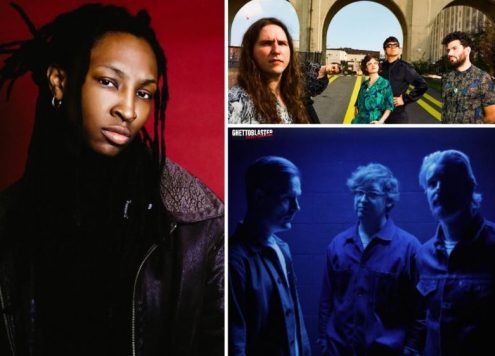
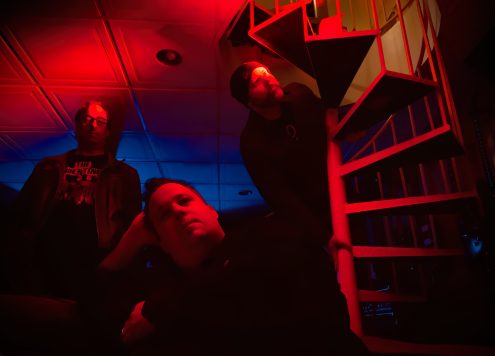
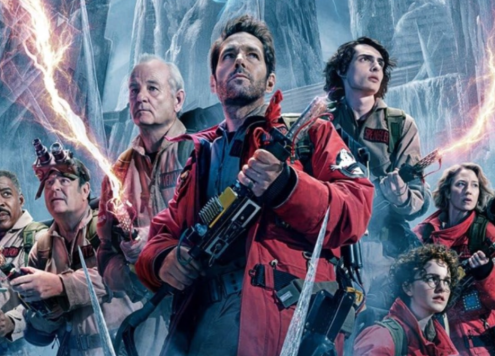

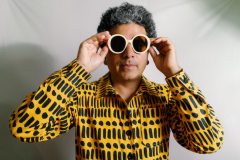
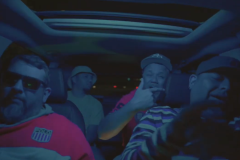
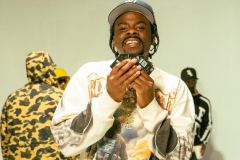
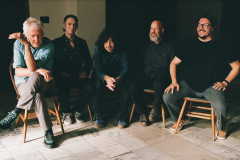

Social Media